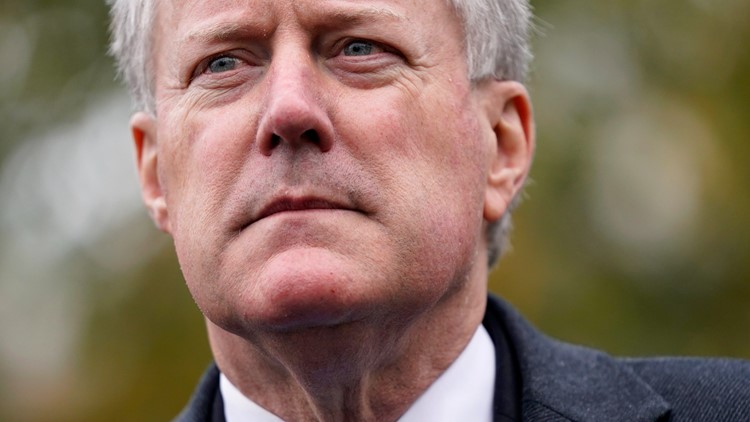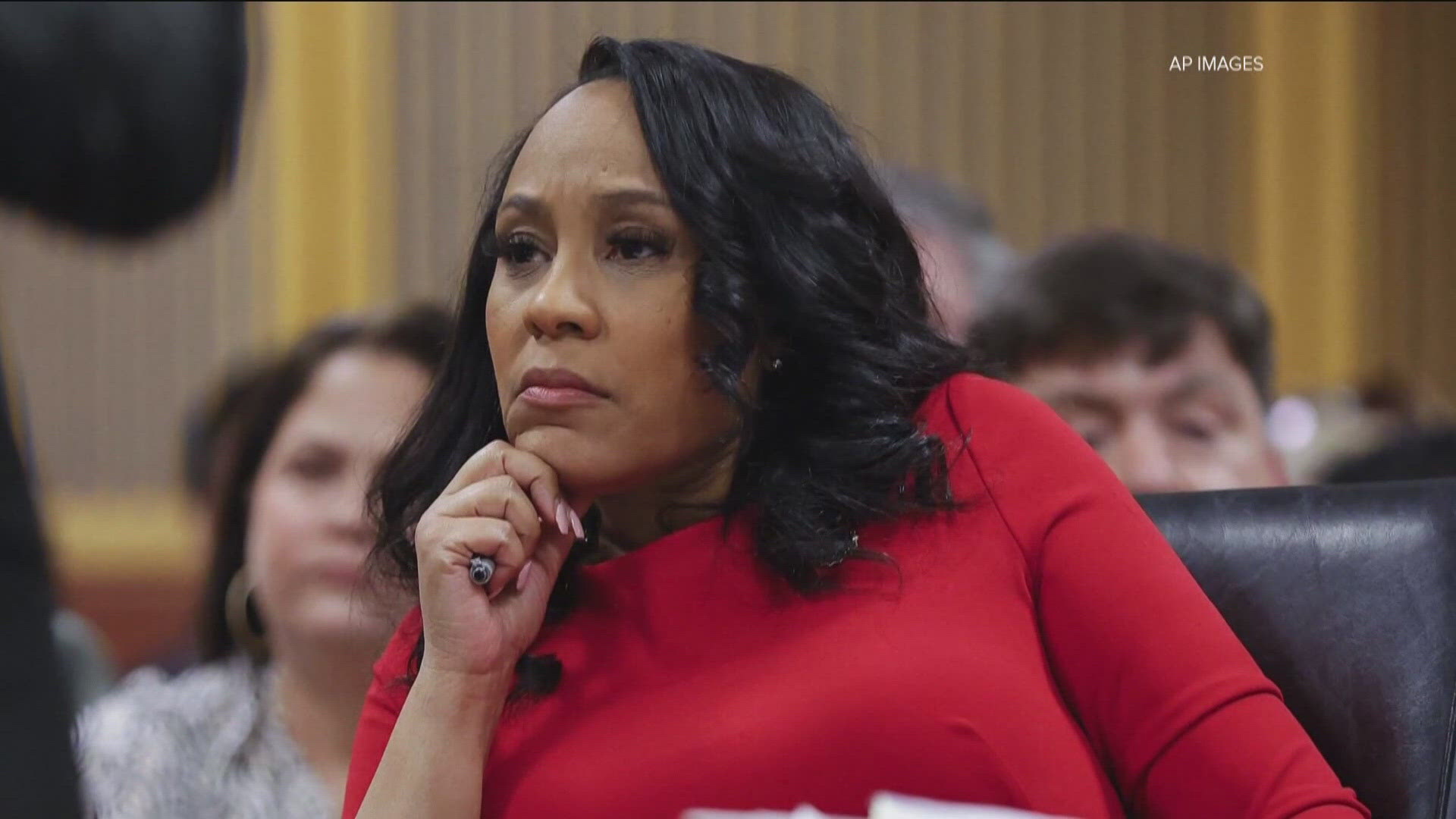FULTON COUNTY, Ga. — Former White House Chief of Staff Mark Meadows renewed his efforts to get Georgia's 2020 election interference charges against him dismissed Monday by arguing that the U.S. Constitution's Supremacy Clause protects him from state criminal prosecution.
In a Monday legal filing, Meadows asked Fulton County Superior Court Judge Scott McAfee to hold an evidentiary hearing on the matter "if the State meets its initial burden."
Meadows previously raised a Supremacy Clause argument in February when he argued in a court filing that "the core principle behind the doctrine of Supremacy Clause immunity is that federal law, not state law, must govern the conduct of federal officials in carrying out their federal duties."
In that same court filing, Meadows argued that the charges he faces in Fulton County "all relate to actions he took as the Chief of Staff" to President Trump — actions he argues were part of his official duties in that role.
Meadows' alleged involvement in the case is largely tied to a Jan. 2, 2021 phone call between former President Donald Trump and current Georgia Secretary of State Brad Raffensperger, where Trump can be heard insisting he won the state. Meadows has been charged with violating Georgia's RICO law and is accused of trying to get Raffensperger to violate his oath of office during the 2020 election. He previously pleaded not guilty.
In general, though, the call became a key part of the case, and Meadows' attorneys argued in February that if he had refused to arrange meetings or calls between the then President and other leaders, it would have affected his ability to do his job.
"The Supremacy Clause has been held to prohibit States from bringing 'suits under state law against federal officials carrying out their executive duties," Meadows' attorneys wrote in the February court filing.
RELATED: Appeals court rules Mark Meadows can't take Georgia election case to federal court. Here's why.
However, Fulton County prosecutors have argued that Meadows' alleged conduct in relation to efforts to overturn the results of the 2020 presidential election in Georgia was outside his duties as a federal official.
"The evidentiary record already developed, including defendant Meadows's own testimony, establishes that his association with the RICO conspiracy was not authorized by federal law," prosecutors wrote in a March 15 court filing.
In late February, an appeals court affirmed a U.S. district court's ruling and rejected Meadows' efforts to remove his case to federal court on similar grounds.
"We conclude that Meadows’s association with the alleged conspiracy was not related to his office of chief of staff," the opinion from the Eleventh Circuit Court of Appeals stated. "Simply put, whatever the precise contours of Meadows's official authority, that authority did not extend to an alleged conspiracy to overturn valid election results."
State prosecutors claimed those federal rulings should compel Fulton County Judge McAfee to reject Meadows' Supremacy Clause claims.
"In order to grant the relief the Defendant requests, this Court would therefore be required to ignore the factual findings and the legal reasoning of two federal courts," prosecutors wrote.
But Meadows' attorneys argued in his Monday filing in Fulton County Superior Court that those federal rulings "have no precedential impact or preclusive effect on Mr. Meadows' motion to dismiss." They assert that his request to remove the case to federal court and his immunity from state prosecution are distinct issues.
Judge McAfee has yet to approve or deny Meadows' motion and request for a hearing.



